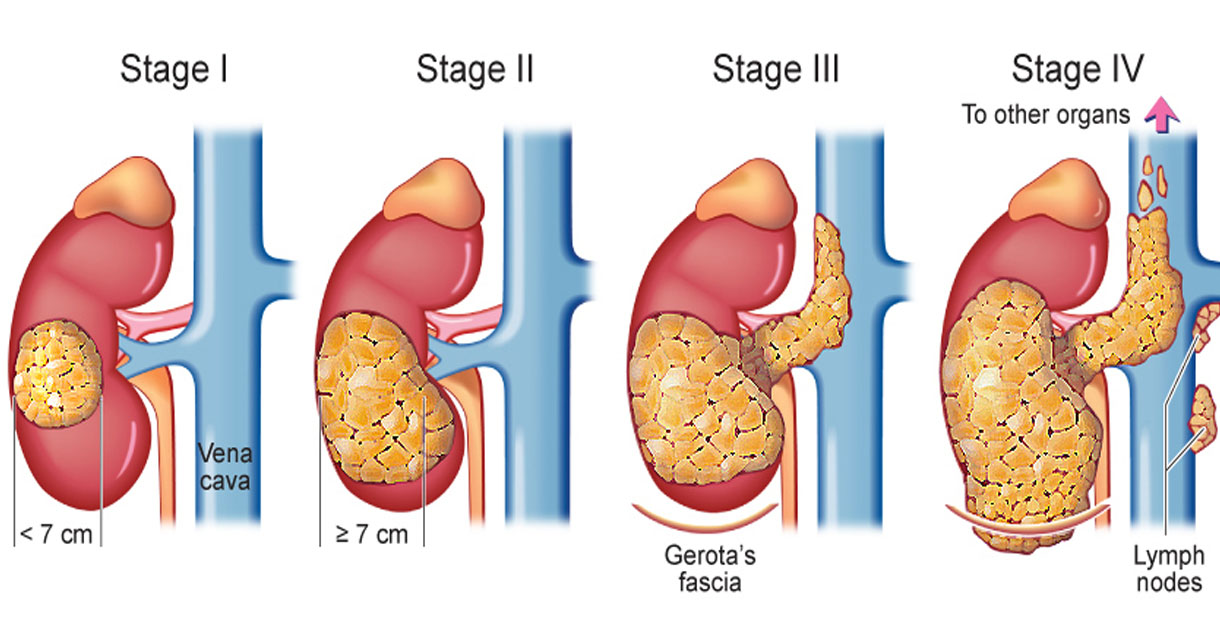Kidney Cancer Treatment in Bulgaria
Search and Compare the Best Clinics and Doctors at the Lowest Prices for Kidney Cancer Treatment in Bulgaria

Find the best clinics for Kidney Cancer Treatment in Bulgaria
No clinics available
Ukraine offers the best prices Worldwide
Price: $ 2,487

- Home
- Bulgaria
WHY US?
At Medijump, we're making medical easy. You can search, compare, discuss, and book your medical all in one place. We open the door to the best medical providers worldwide, saving you time and energy along the way, and it's all for FREE, no hidden fees, and no price markups guaranteed. So what are you waiting for?

Free

Best Price

Widest Selection

Risk-Free
What you need to know about Kidney Cancer Treatment in Bulgaria
Treatment for kidney cancer depends on what stage the cancer is at, whether cancer has spread, your age, your overall health, and your personal preference. The most common treatment for this disease is surgery to remove part or all of the kidney. In advanced cases, treatment with a drug may also be used to treat kidney cancer.
What does a Kidney Cancer Treatment Procedure Involve?

There are two types of surgery to treat kidney cancer: surgery to remove the entire kidney (nephrectomy) and surgery to remove the part of the kidney that contains cancer (partial nephrectomy), both are performed under general anesthetic. For small tumors, your doctor may recommend cryoablation (treatment to freeze cancer cells to kill it) and radiofrequency ablation (treatment to burn cancer cells to kill it). If your kidney cancer is at an advanced stage, a drug may be used instead of surgery, such as immunotherapy (uses your own immune system to fight cancer cells), anti-angiogenic therapies (reduce the blood supply to the tumor to slow or stop the tumor’s growth), and targeted therapies (directly inhibit the growth of cancer).
How Long Should I Stay in Bulgaria for a Kidney Cancer Treatment Procedure?
Your length of stay in Bulgaria depends on which procedure you underwent. In general, you will need to stay in the hospital for 2 to 7 days and you need to plan to stay in the country for 7 to 14 additional days after surgery. If you only undergo therapy, your length of stay depends on how many cycles are needed for your specific condition.
What's the Recovery Time for Kidney Cancer Treatment Procedures in Bulgaria?
The total recovery time until you can go back to your normal routine and perform strenuous activities or heavy lifting may take about 6 weeks, but you may be able to return to work within 3-4 weeks if your job is not physically demanding.
What sort of Aftercare is Required for Kidney Cancer Treatment Procedures in Bulgaria?
Your surgeon will give you detailed instructions to help your recovery, which may include exercises, restrictions, wound care, and diet. You may need to attend regular checkups with your local doctor to monitor your condition. It is really important to eat well and get good nutrition during and after cancer treatment to avoid weight loss and to regain strength.
What's the Success Rate of Kidney Cancer Treatment Procedures in Bulgaria?
The success rate for kidney cancer treatment depends largely on the stage of cancer and how early the treatment is received. The success rate can range from 69% to 93%. There are some side effects and risks that you should be aware of, such as infection, bleeding, damage to other organs, indigestion, hypertension, tiredness, diarrhea, infertility, rash, and shortness of breath.
Are there Alternatives to Kidney Cancer Treatment Procedures in Bulgaria?
If you have a small tumor or you are too frail for treatment, your doctor may recommend ‘active surveillance,’ which means your tumor is closely watched to see if it grows.
What Should You Expect Before and After the Procedure
Kidney cancer is life-threatening, can spread to other organs, and cause painful symptoms. After successful treatment, the symptoms are relieved and you can get back to a normal life. Living with one kidney may sound frightening, but most people can live just fine and their quality of life is not affected.
Whilst the information presented here has been accurately sourced and verified by a medical professional for its accuracy, it is still advised to consult with your doctor before pursuing a medical treatment at one of the listed medical providers
No Time?
Tell us what you're looking for and we'll reachout to the top clinics all at once
Enquire Now

Popular Procedures in Bulgaria
Prices Start From $2,487

Prices Start From $39

Prices Start From $2,487

Prices Start From $825

Recommended Medical Centers in Bulgaria for procedures similar to Kidney Cancer Treatment

- Interpreter services
- Translation service
- Religious facilities
- Medical records transfer
- Medical travel insurance
- Health insurance coordination
- TV in the room
- Safe in the room
- Phone in the room
- Private rooms for patients available

- Interpreter services
- Translation service
- Religious facilities
- Medical records transfer
- Medical travel insurance
- Health insurance coordination
- TV in the room
- Safe in the room
- Phone in the room
- Private rooms for patients available

- Interpreter services
- Translation service
- Religious facilities
- Medical records transfer
- Medical travel insurance
- Health insurance coordination
- TV in the room
- Safe in the room
- Phone in the room
- Private rooms for patients available

- Interpreter services
- Translation service
- Religious facilities
- Medical records transfer
- Medical travel insurance
- Health insurance coordination
- TV in the room
- Safe in the room
- Phone in the room
- Private rooms for patients available

- Interpreter services
- Translation service
- Religious facilities
- Medical records transfer
- Medical travel insurance
- Health insurance coordination
- TV in the room
- Safe in the room
- Phone in the room
- Private rooms for patients available

- Interpreter services
- Translation service
- Religious facilities
- Medical records transfer
- Medical travel insurance
- Health insurance coordination
- TV in the room
- Safe in the room
- Phone in the room
- Private rooms for patients available

- Interpreter services
- Translation service
- Religious facilities
- Medical records transfer
- Medical travel insurance
- Health insurance coordination
- TV in the room
- Safe in the room
- Phone in the room
- Private rooms for patients available

- Interpreter services
- Translation service
- Religious facilities
- Medical records transfer
- Medical travel insurance
- Health insurance coordination
- TV in the room
- Safe in the room
- Phone in the room
- Private rooms for patients available

- Interpreter services
- Translation service
- Religious facilities
- Medical records transfer
- Medical travel insurance
- Health insurance coordination
- TV in the room
- Safe in the room
- Phone in the room
- Private rooms for patients available

- Interpreter services
- Translation service
- Religious facilities
- Medical records transfer
- Medical travel insurance
- Health insurance coordination
- TV in the room
- Safe in the room
- Phone in the room
- Private rooms for patients available
Kidney Cancer Treatment in and around Bulgaria
Introduction
Bulgaria has plenty to offer and tourists are going to be very impressed with the country’s mountainous landscapes, beautiful Black Sea beaches, fascinating history, friendly locals, lively nightlife, and affordability. Although the country’s holiday tourism is very much on the radar, it is also actually quite popular with medical tourists, due to its modern medical centers, highly trained medical professionals, state-of-the-art equipment, affordable healthcare, and mineral baths, thousands of medical tourists visit this country each year. Most of the medical tourists come for dental treatment, orthopedic surgery, elective surgery, neurosurgery, as well as health screening.
Popular Cities and Regions in Bulgaria
Bulgaria’s laid-back capital city, Sofia, is truly a must-visit. It is full of museums, Ottoman mosques, communist architecture, chic galleries, Eastern Orthodox churches, amazing restaurants, and upbeat clubs. One of the most popular landmarks in the country is the Aleksander Nevski Cathedral, which is an awe-inspiring church built between 1882 and 1912 to honor 200,000 Russian soldiers who died fighting for the independence of Bulgaria during the Russo-Turkish war. If you want to relax on beautiful beaches visit Varna, which is a major tourist destination during the summer. The second-largest, city in Bulgaria is Plovdiv and it is one of the oldest continuously inhabited cities in Europe. Tourists are attracted by the Roman Amphitheatre, Archeological Museum, and Tsar Simeon Central Garden.
Transport in Bulgaria
Most international tourists will arrive at Sofia Airport, which serves flights to most numerous major cities in Europe and the Middle East. There are several budget airlines that operate flights from this airport, including Ryanair and Wizz Air. Domestic flights are available, but they tend to be expensive. Therefore, to travel from one city to another, trains and buses are the best option. Buses and trains are punctual and affordable. However, if you are in a hurry, you should avoid trains as they can be a little slow. To travel around big cities, taxis are widely available and are really cheap. Just make sure you choose a licensed taxi to avoid being overcharged.
Visas in Bulgaria
While Bulgaria is not yet a part of the Schengen Area, it has a visa policy that is based on the Schengen system. Therefore, holders of Schengen Visa are allowed to enter the country. Additionally, citizens of 62 countries, including the US, Australia, and the UAE, can stay in the country for up to 90 days without a visa.
Weather in Bulgaria
From June to August, Bulgaria experiences summer. The weather can get a bit hot and humid, with an average temperature of 19°C to 21°C. July is the wettest month in the country. Winter, from December to February, is usually freezing. Autumn and Spring bring pleasant weather.
Additional Info
- Local Currency: The official currency is the Bulgarian Lev (BGN). 1 USD will get you approx. 1.8 BGN.
- Money & Payments: You can find ATMs in every city in the country. Credit cards are accepted in bigger restaurants and hotels. Tipping is sometimes expected.
- Local Language: Bulgarian is the official language in Bulgaria. Turkish and Roma are spoken by a minority of people. English is becoming more and more common in the country, but it is not widely spoken.
- Local Culture and Religion: Christianity dominates the population of Bulgaria, followed by Islam and Judaism.
- Public holidays: Bulgaria celebrates several historical and religious holidays, such as Orthodox Good Friday, Orthodox Easter Day, Independence Day, Culture and Literacy Day, Christmas Day, and Liberation Day.
Popular Searches
- Plastic Surgery in Thailand
- Dental Implants in Thailand
- Hair Transplant in Thailand
- Breast Augmentation Thailand
- Gastric Sleeve in Thailand
- Gender Reassignment Surgery in Thailand
- Laser Hair Removal in Bangkok
- Botox in Bangkok
- Dermatology in Bangkok
- Breast Augmentation in Bangkok
- Coolsculpting in Bangkok
- Veneers in Turkey
- Hair Transplant in Turkey
- Rhinoplasty in Turkey
- Stem Cell Therapy in Mexico
- Rhinoplasty in Mexico
- Liposuction in Mexico
- Coolsculpting in Tijuana
- Rhinoplasty in Korea
- Scar Removal in Korea
- Gastric Sleeve in Turkey
- Bone Marrow Transplant in India
- Invisalign in Malaysia
- Plastic Surgery in the Dominican Republic
- Tummy Tuck in the Dominican Republic
- Plastic and Cosmetic Surgery in Poland
- Rhinoplasty in Poland
- Hair Implant in Poland
- Dental Implants in Poland
- IVF in Turkey